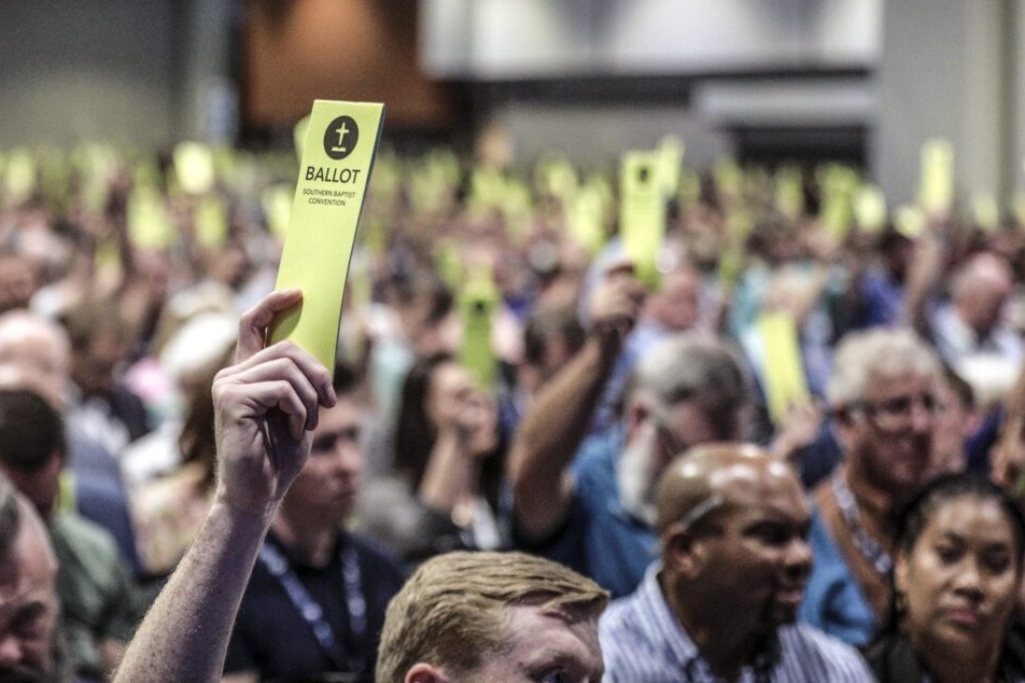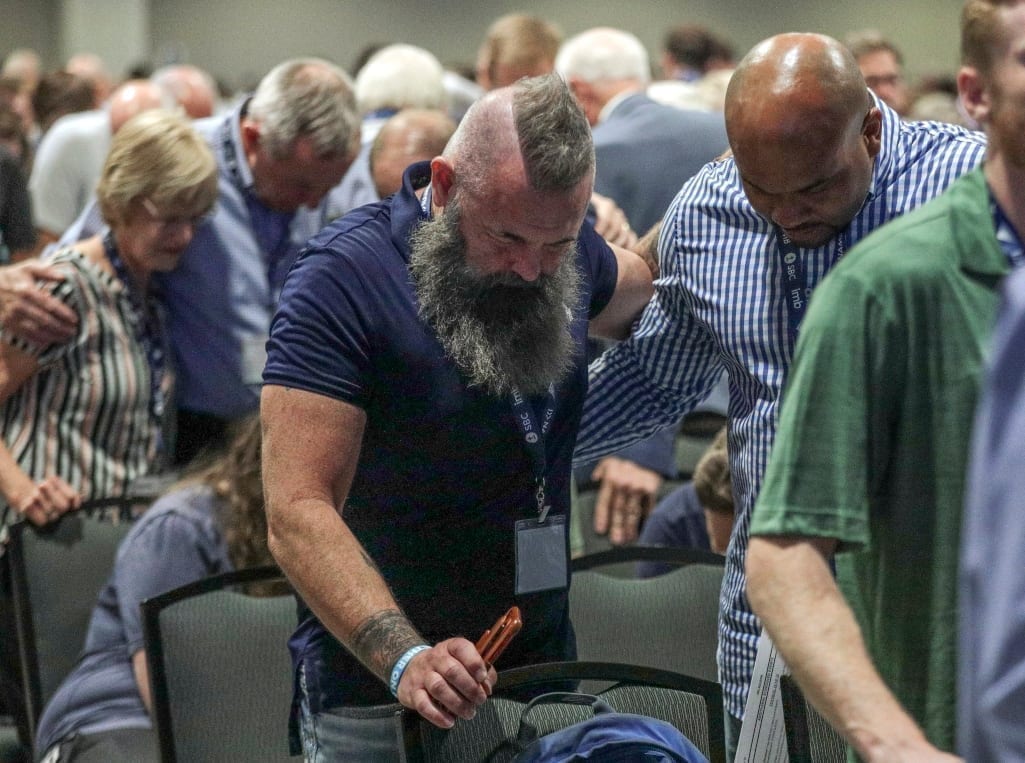CARY (BSCNC Communications) – I drive by an abortion clinic many days. It’s near my home and just around the corner from where my children went to high school. The parking lot is always full, except on Sundays when it’s closed. For some months after the facility opened, I would see a group of people, led by a Catholic priest, praying quietly on the sidewalk in front of the clinic. Sanctity of Human Life Sunday is recognized each year near the anniversary of the Roe v. Wade decision. This year, Southern Baptists are marking Sunday, January 17 but many national organizations are observing January 24. The date is not important, but it is important to take some time to recognize the horror of abortion, to recommit to pray for laws that will reduce abortions, to pray for people who are considering abortion, and to commit to some form of action. The suggestions above are a good place to start. Traci Griggs is the Liaison to the Christian Life and Public Affairs Committee of the Baptist State Convention of North Carolina.
Over the years, we’ve all watched as those opposed to abortion have grappled with the appropriate response to it. We are, after all, Christians attempting to emulate the life of Jesus before a watching world. We work to balance His attributes of grace and truth (John 1:14) especially on this issue. We know the answer lies somewhere between the bombers/snipers (which we vehemently condemn) and the apathetic. We also recognize that there are those sitting in our churches who have experienced abortion and we’re conscious of the pain that condemning abortion could inflict.
However, as we recognize the 36th anniversary of the Roe v. Wade Supreme Court decision, which legalized abortion in every state across the nation, Christians fight a malaise that has settled over the issue. Unless we go to Web sites that show graphic pictures of aborted babies or drive by an abortion clinic every day, the issue fades into the background for many of us.
Meanwhile, the nation’s largest abortion provider, Planned Parenthood, has crafted a public image that appeals to the masses and certainly to our lawmakers. American taxpayers support Planned Parenthood to the tune of $349 million a year (2007-2008 Planned Parenthood Annual Report), freeing up the organization to fiercely advocate legalization of abortion around the world and to fight any efforts by states to restrict it.
It goes without saying that abortion is an emotionally charged issue that has become hot politically. Perhaps for that reason, some Christians shy away from dealing with it. “Let’s concentrate on what we’re for and not what we’re against,” was the recent comment from one pastor. The 2010 Explore the Bible Adult Learner Guide from LifeWay has a lesson for January 17 entitled, “Sanctity of Human Life.” Its suggestions for supporting Sanctity of Life include concern for children with special needs, concern for sick and dying people, and concern for parents and children. These are important matters, but does such a lesson address the core concern? Does it challenge people to grapple with the question of how Christians should be thinking about and responding to abortion?
We are 36 years beyond the passage of Roe v. Wade. Nearly two generations have grown up with legalized abortion as status quo. If the Senate version of the Health Reform bill passes, we will see a surge in taxpayer funded abortions in this country. (Current federal law prohibits the use of federal funds for abortions except in the case of rape, incest, or if the mother’s life is in danger.) And yet, some of us choose to give only passing notice to the estimated 1.2 million abortions performed each year in local communities all around our country.
How then should we respond? I think we would all agree that a biblical issue is a biblical issue, even when it turns political. We are not relieved of our responsibility to respond simply because the issue is incendiary. But how to do it?
John Piper, pastor at Bethlehem Baptist Church in Minneapolis, Minnesota, in a sermon delivered on 2009 Sanctity of Human Life Sunday, chooses a hard line. He chastises those who say abortion is an issue of reproductive freedom for women. “You are not protecting reproductive freedom, you are authorizing the destruction of freedom for one million little human beings every year…. Killing our children is killing our children no matter how many times you say it is a private family matter.” However, Piper then goes on to examine biblical references that shed light on God’s view of the unborn and marvels at the “wonder in the womb.”
Albert Mohler, president of The Southern Baptist Theological Seminary, in a blog post from August 21, 2009, points out how thinking people of all backgrounds are beginning to peer beyond the rhetoric of pro-choice advocates to see abortion for what it really is. This truth is being revealed in many ways, including the increased use of ultrasounds in pregnancy resource centers and mainstream movies such as Bella and Juno. Mohler writes, “The evil of abortion cannot be hidden…the voice of life cannot be forgotten.”
However, for those of us not endowed with a pulpit from which to exposit, here are some practical suggestions:
Write. Write letters and/or e-mails to your lawmakers when issues come up pertaining to abortion. Nearly every year, legislation is considered which would restrict abortion in our state and nation. Don’t underestimate how much effect a short note to your representative can have.
Advocate. Ask your pastor what your church will do to commemorate Sanctity of Human Life Sunday each year. Have some suggestions ready including video resources or speakers that can provide a testimonial.
Volunteer. Pregnancy Resource Centers and Maternity Homes offer alternatives to abortion and are found in almost every community. Most are run by professional staff but volunteers are the lifeblood. They can use help with counseling, fundraising, event planning, marketing, etc.
Get involved in sex education curriculum selection. There is an immediate need for parents to get involved in sex education curriculum selection in their local school systems. The sex education law in North Carolina has changed, opening the door to teaching a pro-abortion philosophy in our public schools. Contact me ([email protected]) for more information.
A Sanctity of Human Life video from the BSCNC is available here for you to download and use in your church service if you would like.
6 MIN READ TIME


